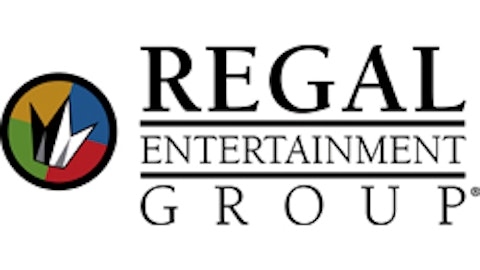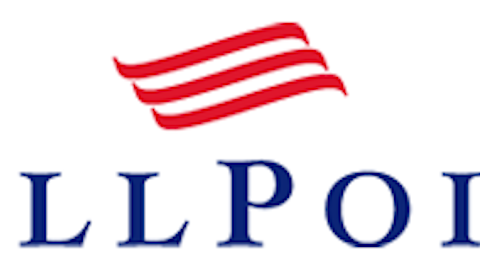Are health insurers corporate equivalents of the super-villains in the “Despicable Me” movies? Many Americans might think so. Stories abound of examples where individuals felt they weren’t treated as well as they should have been by their health insurance company.
But, like the cartoon character Gru in the animated movies, health insurers aren’t as bad as they might seem at first glance. This is certainly borne out in the latest results from the National Health Insurer Report Card published by the American Medical Association, or AMA. Here are five myths about health insurers that don’t hold water, according to the AMA’s findings.
Myth No. 1: Health insurers require prior authorizations a lot.
Prior authorizations are a way that insurers control costs by limiting payment for a service unless it’s approved in advance. You might think that the practice would be used extensively to keep expenses down and profits up. But prior authorizations are used in only a small fraction of cases.
Anthem, which is owned by WellPoint, Inc. (NYSE:WLP), for example, required prior authorizations only 2.14% of the time. CIGNA Corporation (NYSE:CI) and Aetna Inc (NYSE:AET) have higher frequencies — 4.74% and 5.42%, respectively. Humana Inc (NYSE:HUM) is even higher, but still in the single digits with a 8.42% prior authorization rate. Of the publicly traded insurers, only UnitedHealth Group Inc. (NYSE:UNH) requires prior authorizations more than 10% of the time, with a rate of 12.43%.

Some people might have the impression that health insurance companies deny claims frequently. That’s actually far from the case. Even when denials occur, it usually doesn’t involve the entire claim and only impacts specific charges (referred to as claim lines).
CIGNA Corporation (NYSE:CI) has the lowest rate of the big five, denying only 0.54% of claim lines. UnitedHealth Group Inc. (NYSE:UNH) denied 1.18% of claim lines. Aetna Inc (NYSE:AET) and Humana Inc (NYSE:HUM) weren’t far behind, with 1.5% and 1.97% denial rates, respectively. Anthem was the highest of the group, with a 2.64% claim line denial rate. All of the publicly traded health insurers have markedly lower denial rates than they did just five years ago.
Myth No. 3: When health insurers deny claims, it’s usually because they don’t cover the services performed.
It’s certainly true that health insurers don’t cover every medical procedure or prescription drug that their members would like. Are a large number of claim lines denied because of this? Not as many as you might think.
Granted, three of the insurers listed non-covered charges as their top reason for denying a claim line. But for those three, this represented only a tiny fraction of all claim lines. WellPoint, Inc. (NYSE:WLP)’s Anthem denied 0.78% of all claim lines for non-coverage. CIGNA Corporation (NYSE:CI) denied 0.56% of claim lines, and Aetna Inc (NYSE:AET) denied 0.16% for this reason. Most of the insurers rejected well under one-third of total denials for non-coverage.
Myth No 4: Health insurers hold up paying claims for as long as possible.
Of course, there’s another way for insurers to avoid payment of claims. They could sit on them for a long time and hold up payment. But the AMA data shows that usually doesn’t happen.
Humana pays its claims the quickest of the bunch, with a median first remittance response time of six days. WellPoint, Inc. (NYSE:WLP)’s Anthem and CIGNA Corporation (NYSE:CI) aren’t far behind with a median of seven days. UnitedHealth waits a median of 11 days for payment. Aetna Inc (NYSE:AET) brings up the rear with a median remittance time of 14 days.
None of these response times are bad. What’s more, all of these companies pay more than 98% of claim dollars within 30 days. That’s not a picture of clinching money to keep it from going out the door.
Myth No. 5: Health insurers mess up payments frequently.
What about accuracy? Surely these big bureaucracies mess up claims by the droves. Nope — at least, not for the most part.
Anthem has the worst record of the five, with an accuracy rate for first electronic remittance advice, or ERA, of 90.77%. An error rate of nearly one in 10 isn’t too great. However, the other insurers fared much better.
Aetna Inc (NYSE:AET), CIGNA Corporation (NYSE:CI), and Humana all boast accuracy rates of more than 96%. UnitedHealth claims the best record, with a first ERA accuracy rate of 97.52%. All of them also achieved tremendous improvement of accuracy over the past few years.
Good guys?
Not only are these five health insurers not super-villains when it comes to paying up for insurance claims, several of them have delivered really good returns for investors. Take a look at how these market minions have performed over the past year.

AET Total Return Price data by YCharts.
Humana is the worst, bringing in a total return of a little less than 12%. The others did much better, though, with Aetna Inc (NYSE:AET) and CIGNA Corporation (NYSE:CI) hauling in 70% returns in a year. Would you like more of your stocks to have performance so “despicable”? Me too.
The article 5 Myths About Those Despicable Health Insurers originally appeared on Fool.com and is written by Keith Speights.
Fool contributor Keith Speights has no position in any stocks mentioned. The Motley Fool recommends UnitedHealth Group and WellPoint. The Motley Fool owns shares of WellPoint.
Copyright © 1995 – 2013 The Motley Fool, LLC. All rights reserved. The Motley Fool has a disclosure policy.




